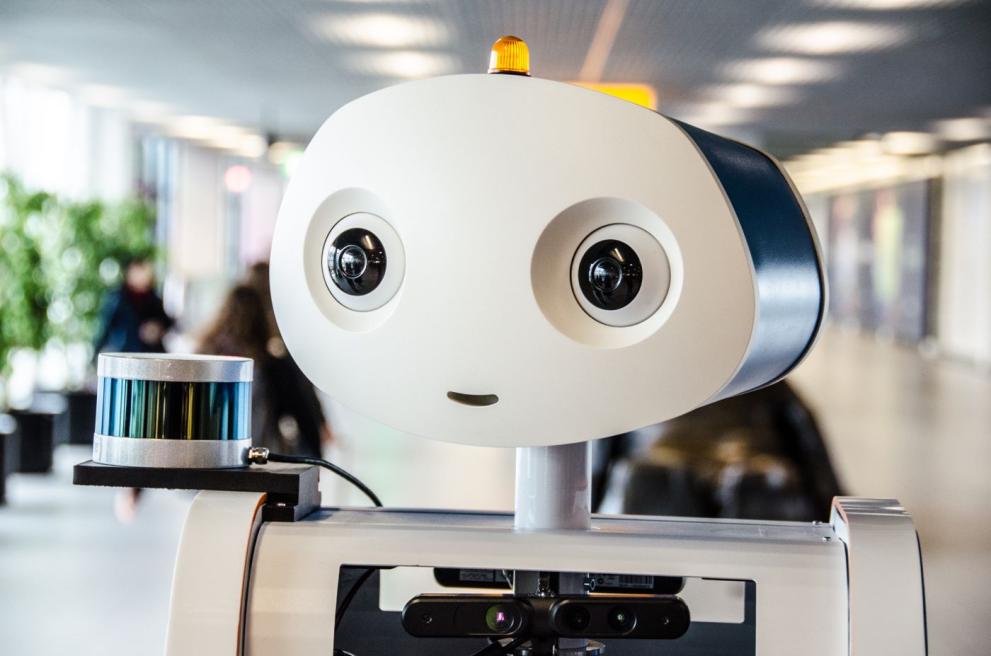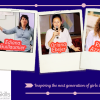Girls build innovative robots for business & care sectors in Microsoft's DigiGirlz AI Challenge

Life post the pandemic took its time to return to normality. But who will water the family's plants if nobody is studying or working from home? The Microbit robot may hold the answer to this question. The Microsoft DigiGirlzAI Challenge 2020-2021 competition brought to life Microbit and many other creative AI and robotics ideas. Digital education and environmental concepts, apps, robots, and digital assistants were amongst the key topics of focus during the event. The competition targets all youngsters and children, but especially girls and aims to empower them to consider a career in AI or robotics.
"DigiGirlz AI" Challenge: concept behind
The Microsoft 2020 - 2021 academic year in Hungary ended on 29 May, with the Microsoft DigiGirlz AI Challenge competition taking place online the same day. This edition reached 32% more attendees compared to the previous one: almost 300 girls between the age of 8 to 18 were able to measure their digital knowledge and education. The challenge required a variety of creative ideas that combine digital thinking and use of AI. Three out of the 2 age groups (8 to 11 years and 12 to 18 years) got prizes from the jury - and so did the top 30 scores in the country.
With 2020 being largely influenced by the pandemic, many applications looking to address confinement challenges, or tackle difficulties in online education were presented. Special applications, software, digital spectacles and assistants, digital writing and drawing tools and various robots were some of the imaginative solutions that children and teachers can use to learn, teach, and brainstorm. Thus, many of the solutions proposed aimed to address stress and reduce feelings of loneliness: like friendly robots providing emotional support to older people or within business/ company contexts, can have tons of applications. Another key theme of the year was sustainability - and many of the participants in the Microsoft DigiGirlz AI Challenge competition came up with solutions related to protecting fauna and flora, and our environment.
Innovative and sustainable digital solutions - made by young girls
One of the winners in the age group of 8-11 year-olds was Sára Fuchs (age 11), who designed an encouraging and friendly 3D robot with the help of TinkerCad, based on his own ideas. The robot is a simple solution to a real problem (loneliness) that can be addressed using AI technology, as well as being given a creative and modern form.
Winners of the DigiGirlz AI Challenge - an overview
Twelve year-old Krolikowski Lehoczky Lilian designed a (wild) animal recognition AI solution that analyses species density based on geolocation data. The app is designed to help children learn, but also to help them protect their environment. Klára Eszter Oláh, aged 9, looked at various uses of AI and, at the end, developed and presented an idea of loyalty analysis and support in her application. This age group also highlights the youngest winner, Horváth-Nagy Grace (aged 8), who took care of the family's pets with a feeding robot.
Thirteen year-old Jánoskuti Hannáé, designed an environmental app that helps you follow a more environmentally-friendly life. The app follows your habits, shopping and activity to come up with tailored tips that support well-rounded and sustainable routines. Another project in the same group, that of thirteen year-old Jázmin Tóth, showed how AI can be used to enable separate waste collection or how it can help take care of plants - using a Microbit robot only.
“Creativity, help, action – these are typical of girls’ applications. They show how much technology, coding, artificial intelligence can help our lives. The girls participating in Microsoft DigiGirlz AI Challenge have demonstrated that they have every chance of becoming adults in the technology sector, where their talents and knowledge are very much needed" - said Czék Gabriella, Marketing and Operational Director of Microsoft Hungary, about the process of evaluating received applications.
“The Microsoft DigiGirlz competition is also a testimony that we already have young inventors who will be needed in the future. As a member of the jury, I also experienced exciting solutions for young girls. Programming and robotics will play a major role in all disciplines in the future. The most important of the skills will be creativity, which will translate into the uniqueness of problem solving and the great variety of ideas. I am confident that Microsoft DigiGirlz AI Challenge will inspire girls to immerse the magic world of AI and create fantastic things for the future,” - said Dr Anita Breuer, Chair of the Board of Directors of the Foundation for Digital Knowledge, and one of the founders of Logiscool.
Women role models for young girls
During the experience day, the participating girls were also able to familiarise themselves with adult female professionals who could serve as role models for them. For example, Zsuzsa Gerendai, a Python developer, works on bioinformatics projects at Turbine.AI, one of Hungary’s most successful pharmaceutical start-ups. Wheeled Viola from Hortobágy National Park and Dr KatalinOzogány, researcher from the University of Debrecen, presented how to analyse the behaviour of wild horses using AI software. Their example also shows that not only those who write codes or develop software are now using digital technology and AI, but rather knowledge of them is needed across sectors and in almost all professions.
Towards more women in ICT in Hungary, Europe, and beyond
Microsoft’s DigiGirlz programme aims to familiarise young girls with the exciting opportunities of the IT profession, provide insights into the world of programming through their own experiences, and break down the prejudices that girls are less fit for this career than boys. DigiGirlz AI Challenge was launched in 2019 with Microsoft’s Logiscool Foundation, the Digital Knowledge Foundation (DTA). This seeks to showcase the shapes, opportunities, uses and usefulness of AI to girls aged 8-18 who are interested in programming. In the first part of the contest, participants are asked to fill in three quizzes and, based on their score, girls in the second circle will be required to prepare and submit a job on the basis of the topic provided.
At the end of the programme, girls in the second round will be able to take part in an experience day and the best ones were rewarded with valuable prizes. The experience day is usually hosted by Microsoft Hungary, but in 2020 - 2021 took place online. More information on the contest can be found here and below.




